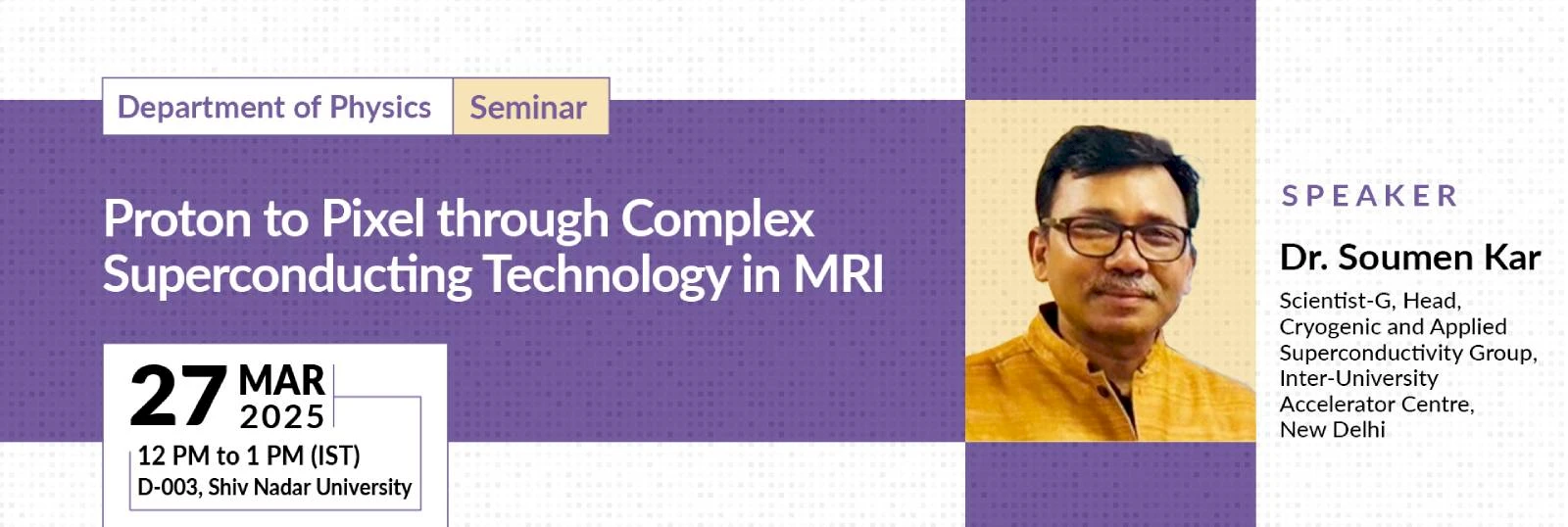Proton to Pixel through Complex Superconducting Technology in MRI
Event Code: 2025032002257
Speaker: Dr. Soumen Kar (Scientist-G, Head, Cryogenic and Applied Superconductivity Group, Inter-University Accelerator Centre, New Delhi)
Magnetic Resonance Imaging (MRI) is one of the most advanced and widely used diagnostic techniques for clinical evaluation. Superconductivity is the only enabling technology for the clinical-grade MRI scanner. A highly homogenous and ultra-stable superconducting magnet is the heart of any modern scanner. Superconducting magnet plays the most crucial role for generating image pixels by interacting with the protons in human cells. The stringent requirements of MRI magnet demand not only complex design but also cutting-edge superconducting technologies and precise manufacturing processes. All superconducting MRI magnets in India are presently imported. The MRI scanners are one of the costliest diagnostic tools; thereby their access is mostly in metro cities and big towns. To provide accessible healthcare to wider popultaion, India needs a large number of MRI machines in the next few years which is only possible through indigenous manufacturing. A multi-institutional project on the development of the 1.5T superconducting MRI scanner was funded by the Ministry of Electronics & Information Technology (MeitY), GoI.
Recently, the applied superconductivity lab of IUAC has successfully tested India’s first indigenously designed superconducting MRI magnet system. This talk will discuss how the basic concepts of physics are translated into a sophisticated clinical tool through intricate engineering. This talk will also delve into the complexities of the superconducting technologies along with the inherent challenges in electrical, mechanical & cryogenic engineering involved in developing such a sophisticated clinical machine.
All are cordially invited.

Share this: